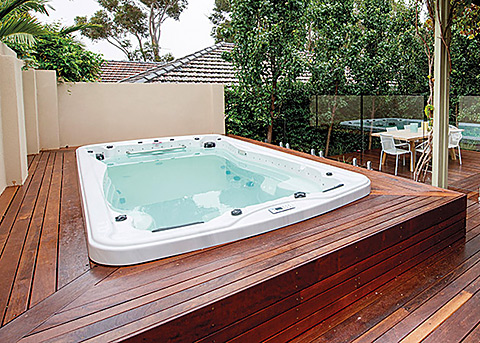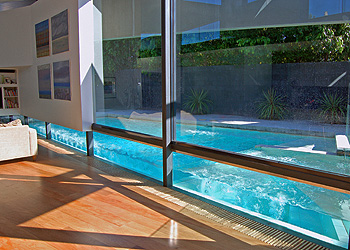With plenty of hot weather still to come this summer, inflatable and portable swimming and wading pools seem like a good idea to keep young children cool – as well as adults. The sad fact is they also increase the risk of drowning if safety precautions aren’t taken
and building regulations not complied with.
The Victorian Building Authority (VBA) believes consumers need to be aware that all spas and swimming pools that hold more than 30 cm of water must be surrounded by a compliant safety barrier when they are set up. This includes inflatable, portable and wading pools, which, like in-ground and other permanent pools and spas, can pose dangers to young children without the proper safety barriers in place.
 VBA Director of Technical and Regulation, Jarrod Edwards, said that Australian consumer law requires portable pools and their retail packaging to carry warnings drawing attention to drowning hazards and local safety barrier/fencing laws. This is enforced by the Australian Competition and Consumer Commission (ACCC) and State and Territory regulators, including the VBA.
VBA Director of Technical and Regulation, Jarrod Edwards, said that Australian consumer law requires portable pools and their retail packaging to carry warnings drawing attention to drowning hazards and local safety barrier/fencing laws. This is enforced by the Australian Competition and Consumer Commission (ACCC) and State and Territory regulators, including the VBA.
“The latest figures from the Royal Life Saving Society of Australia's National Drowning report revealed that over half of all toddler drowning incidents in 2014 /15 occurred in backyard pools,” Mr Edwards said. “This is the very reason the VBA is warning all Victorians of the dangers relocatable pools can pose to young children and reminding them that the Building Regulations 2006 require even small, low cost wading pools that hold more than 30 cm of water to have a safety barrier in place.
“In Victoria the construction or installation of temporary or inflatable pools and spas, constructed within an appropriate and approved safety barrier, does not require a building permit. However, if they hold more than 30cm of water, the construction or installation of those safety barriers will require a building permit.
“Non-compliance can increase the risk of drowning and lead to prosecution by the VBA,” Mr Edwards said.
“A temporary or inflatable pool or spa must not be used until the safety barrier has been installed and a certificate of final inspection has been issued by the relevant building surveyor.”
Mr Edwards said that equally importantly, gates on pool and spa safety fences must be self-closing and self-latching and must never be propped open. Climbable objects should also not be left around fencing and adults must maintain strict supervision of children around pools and spas at all times.
For more information about swimming pools, spas and their safety barrier requirements, refer to swimming pools, spas and their safety barriers on the VBA Website.
Media enquiries
Communications Manager – John Rees – 03 9618 9316 - This email address is being protected from spambots. You need JavaScript enabled to view it.


